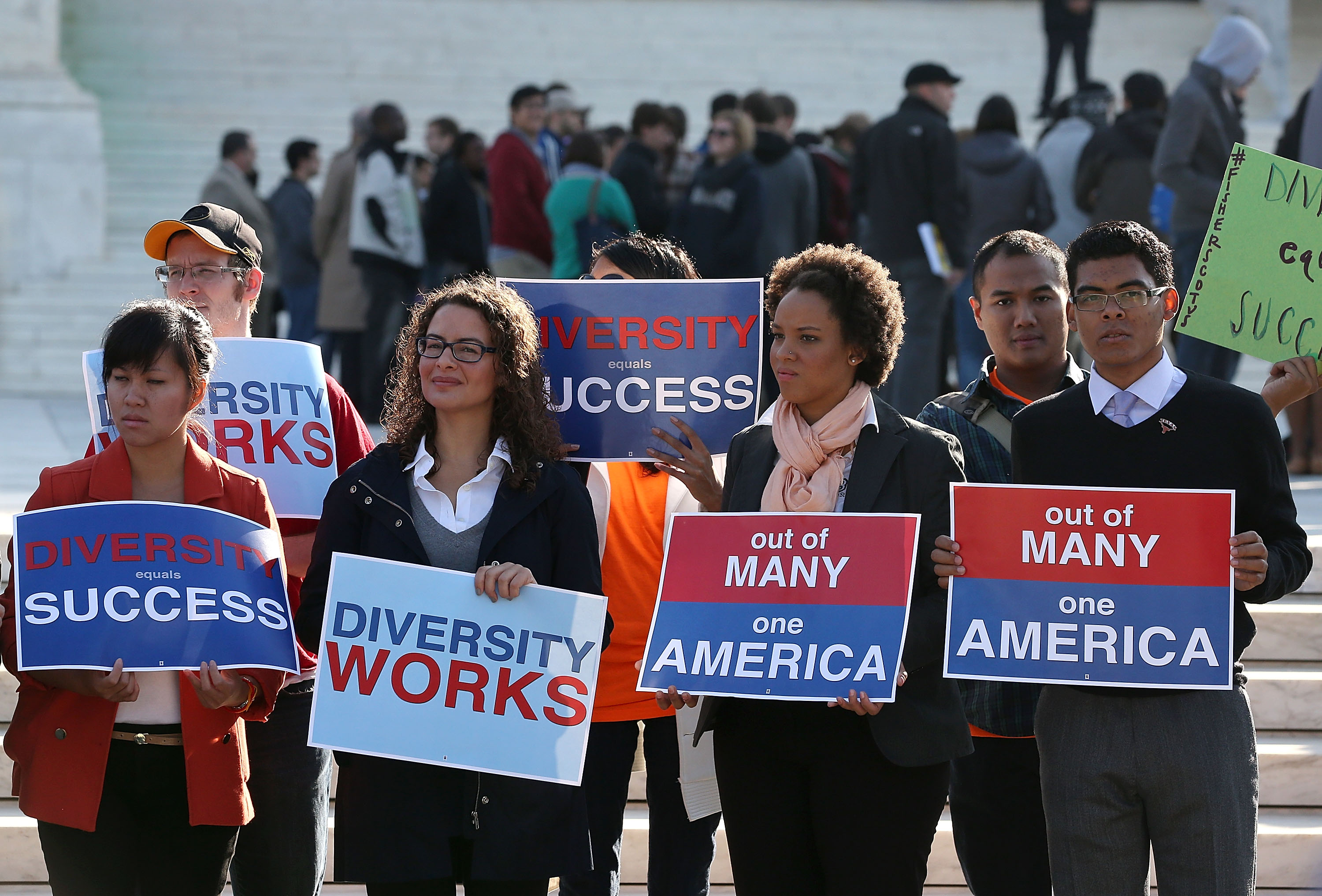
When it comes to admitting students to top institutions there are two main schools of thought, meritocracy and affirmative action. In a merit based system the only things that would matter would be ones tests scores and extracurriculars. The strength of their application. Universities would just straight up look at the numbers. This is not the current system. The current system is an affirmative action system, started by Lyndon B Johnson. In our current system people’s ethnicity, economic background, and the discrimination they have faced is taken into account. The goal of this system is to establish a set of procedures designed to eliminate unlawful discrimination among applicants, remedy the results of such prior discrimination, and prevent such discrimination in the future. Learn more here.
There is no clear argument to which system is inherently better. On the one hand, some argue that the numbers should be all that matter. It is not inherently a bad argument. Why should anything other than what someone has accomplished matter? The counter argument to this being that if a person had access to less resources and was discriminated against, could they have accomplished more. That is the entire idea behind the affirmative action system. There should be weighting towards those who had access to less resources, because if they had the same amount as a privileged person they could have accomplished more.
The meritocracy argument has obvious logical appeal to it, and it makes sense fundamentally. There is no reason to speculate on what some one has done if they have not done it themselves. But the statistics are in favor of an affirmative action approach. According to a study by the US National Library of Medicines, up to eighty percent of test scores can be predicted by a person’s socioeconomic standing and how many resources their school has access to.(Study Here)

Affirmative action can be seen everywhere throughout college admissions. A study conducted by three researchers at Princeton has concluded that African Americans and Hispanics receive “boosts” equivalent to 230 and 180-point SAT increases, respectively, in college admissions. Asian Americans, meanwhile, are penalized by the equivalent of 50 points.(Study Here) The issue that many take with this system is that is based on racial lines rather than economic lines. Many university programs favor those from specific areas in the world and that is where these quantities come from. Although being based n race can be seen as flawed, currently socioeconomic standing is based on racial lines due to past racism in America. It is not a perfect system but it works.
Now it is time for me to ask you, reader, how do you think the system should work? Should there is a meritocracy? Should the current system stay, or be edited along specific lines?
I feel like having a basis of a meritocracy will ensure that applicants are somewhat on the same level, enough to be admitted into the college. However, I think that the ideology behind affirmative action does have truth in it, since the family’s wealth can definitely affect the quality of education for their child. If they have more money, they can afford to attend more prestigious schools, obtain resources for class easier, and also maybe hire tutors to boost their academic scores. I did not know that SAT scores were boosted or penalized based on ethnicity, and I find it interesting that there is a penalty at all. I feel like there needs to be a fine balance of both a meritocracy and affirmative action in order to make it work the best.
I believe that a pure meritocracy only works when everyone involved has been given equal opportunities from the onset. Therefore, I think that the current system that takes into account an individual’s socioeconomic background in addition to their accomplishments when considering college admissions is the fair approach. In addition, court cases such as Gratz v. Bollinger established that race cannot be the sole metric for university admissions; in other words, for affirmative action to be legal today, the institutions must prove that merit in addition to socioeconomic background plays a significant role in their decisions.
The question of should there be practices in order to prevent prejudice and bias in college admissions and employment? I think that’s a pretty straightforward question to answer. Of course. We don’t want certain groups to be affected in a negative way based on certain aspects of their identity such as race, ethnicity, gender, etc. However, the much harder question to answer is: does Affirmative Action do that fairly? I personally think that this kind of affirmative action is actually harmful overall and doesn’t accomplish our broader goal: equity for all humans. What benefit do Asian students get if their SAT score is dropped 50 points? Doesn’t that divide people by race even more? And while I’m not saying that it should be a complete meritocracy, I do think that affirmative action in this capacity is unaligned with our ideals as a country.
My senior year AP Research paper was on affirmative action in college admissions, especially in terms of STEM, based schools/programs. I began researching to topic because I often heard (in both positive and negative contexts) that I’d be easy for me to get into a top school because I was a black woman. But as I researched more I realized the college admissions process was so complex and inequalities were so systemic/systematic, affirmative action couldn’t solve the problem anyways. A lot of opponents see it as a way for less qualified people to get unfair advantages in admissions, but in reality black and brown students have become further underrepresented in the past 35 years. The reality I found was that from elementary school, the US public education system varies highly by community racial and economic make-up. This leads to the inequalities that affirmative action tries to address, at a point in which I believe is just too late.